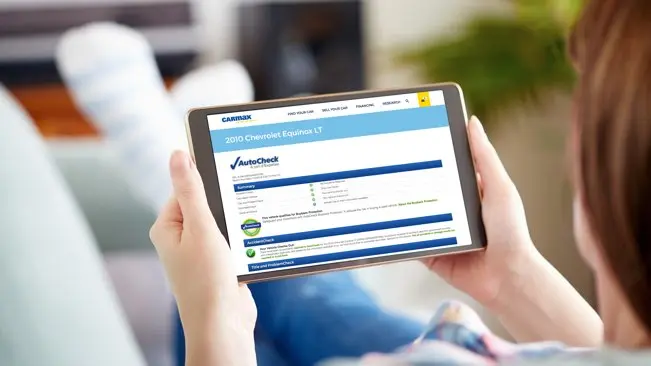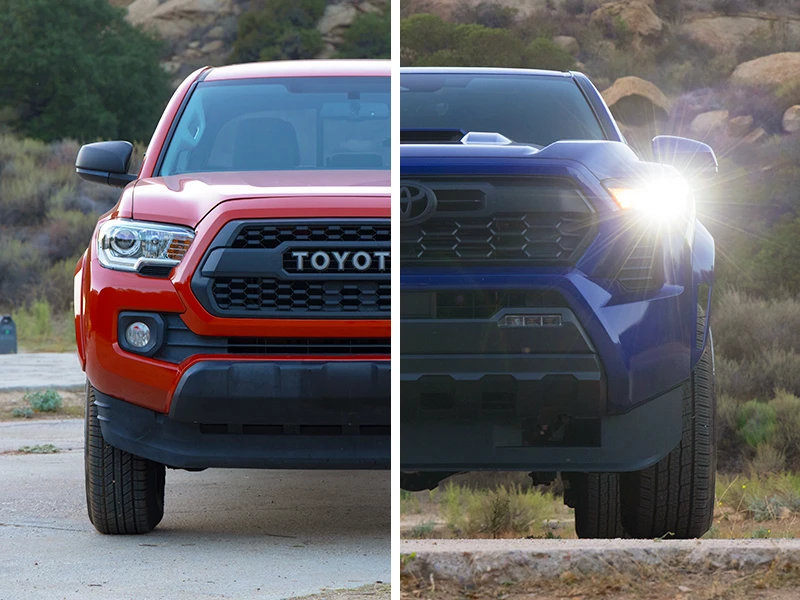It's easy to obtain a free vehicle history report for CarMax vehicles.

In the past, when you got ready to buy a used vehicle, you had to trust that the previous owner fully disclosed its collision history and title status. Unfortunately, since used vehicles can have several or more previous owners, this verbal history could become faulty and imprecise, which might leave you in a bad situation within months of your purchase. The vehicle’s history can take a toll on its overall condition.
At CarMax, you can rely on the clear history documentation provided by an AutoCheck report to help learn the history of a vehicle you’re considering for purchase. That’s because every vehicle CarMax sells comes with a free AutoCheck Vehicle History Report. Armed with this data, you can make a more informed purchase decision.
It’s helpful to know how to get and read a free Auto Check Vehicle History Report so you can make the best use of the information it contains. Here are some tips to get you started.
Acquiring your free vehicle report
Let’s say you’re researching used Nissan 370Zs. All of CarMax’s vehicles come with AutoCheck reports (click under Free Vehicle History on individual vehicle pages), so you can be aware of reported accidents, title issues, and odometer verification. You can print this report and keep it with your research for future reference.
Understanding a vehicle’s history information will help determine whether that particular car is right for you.
Collision history
Collisions can damage the framework and moving parts of used vehicles, including vehicles with unibody construction, such as the Ford Edge. The Accident Check feature on your car’s AutoCheck report reveals reported collisions, and since this data comes from over 10,000 distinct sources, many of which are not government and independent agencies, accidents left unreported to the police or insurance may not show up on the report. (By the way, CarMax doesn’t sell frame-damaged vehicles.) While no report is perfect, it can give you a better sense of a car’s history.
Title verification
The title verification section reflects the current status of the title and the cause of any change to its designation. After a serious collision or natural disaster, the insurance company may report the vehicle as totaled to state agencies. Repairing the damage does not fully restore the title to its prior state, and it will be reflected as “rebuilt” or “salvaged” on future reports. A rebuilt title can dramatically drop the vehicle’s value despite a lack of noticeable damage or defects. There are many other faults to consider as well while performing a title check, including water and fire damage. (CarMax does not sell vehicles with histories that include water/flood or fire damage.)
Odometer readings
The odometer section lets you review a history of reported readings for comparison to the numbers displayed on the dash. Discrepancies in this area can reflect tampering with the odometer, which can have a detrimental effect on your car ownership experience. The mileage readings should steadily climb through the years, not suddenly fall back. This would indicate that the previous owner or owner’s shop may have tampered with the car’s actual mileage. CarMax does not sell vehicles whose odometers have been “rolled back.”
Rental and fleet vehicles
If the vehicle was used as a taxi, rental, or fleet vehicle, this information will show up in the Event Records section. CarMax doesn’t sell vehicles that previously have been used as taxis; however we do sell cars and trucks that were once used as rental and fleet vehicles.
Detailed history
The detailed history section shows a paper trail of all the times a vehicle was bought and sold since new. This section indicates sale dates, locations, and event details that give you a fuller picture of that vehicle’s past. Beyond showing how many times the vehicle has changed hands and how far it has traveled, this section can reveal the potential for location-specific issues. If a vehicle spent most of its time in a snowy area, for instance, you may want to check the body, frame, and undercarriage for rust before making your purchase. If the rust and detailed history suggest flood damage, it's probably best to walk away.
Comparing vehicle history reports
If you find yourself agonizing over the choice between two similar vehicles, go ahead and compare the vehicle history reports to help you make your final decision. Vehicle problems may directly relate to the way the vehicle was used and cared for over the years, so don’t be afraid to rule out cars with marks on their record.
If you’re buying a used vehicle from a private seller, ask to have it looked over by a licensed mechanic—preferably someone you know and trust. The seller may not be aware of problems that existed before they purchased it.
Once you have a better idea about a car’s potential issues, you’ll better know what you’re getting into, rather than leaving the future to chance alone. It may not be possible for a used car’s complete history to be known, but AutoCheck reports can illuminate lots of a car’s background so that you can make a more informed choice.




